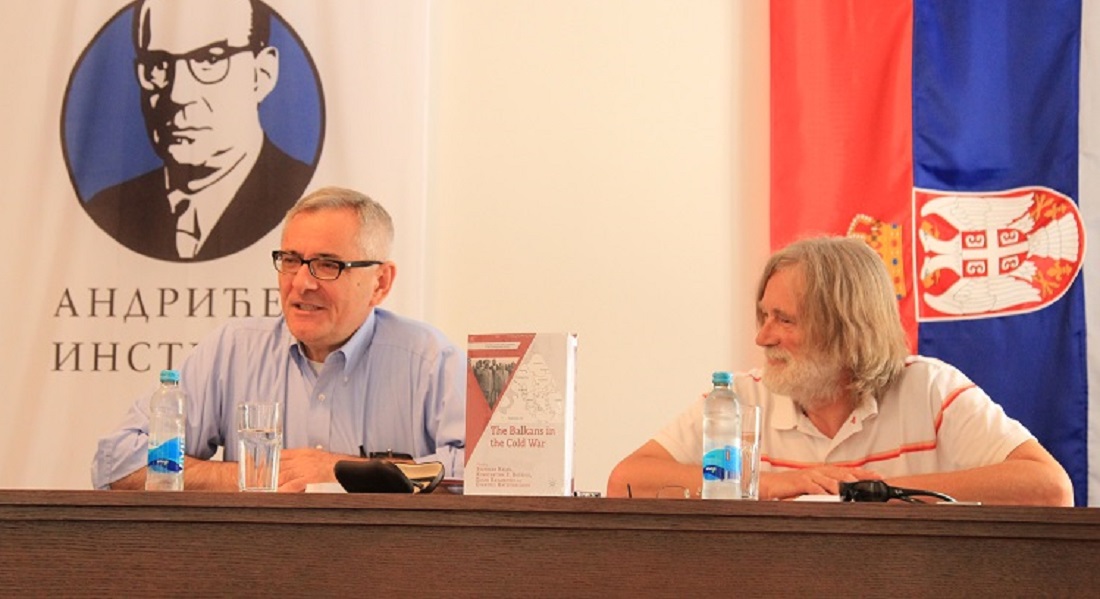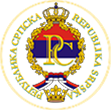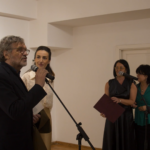Промоција књиге „The Balkans in the Cold War”[:en]Promotion of the book “The Balkans in the Cold War”
Програм данашњег сајамског дана отпочео је промоцијом књиге The Balkans in the Cold War која је одржана у Андрићевом институту. Промоцију је водио Желидраг Никчевић, а књигу је представио приређивач др Светозар Рајак, професор Лондонске школе за економију и политичке науке.
Књига The Balkans in the Cold War је резултат двоипогодишњег рада шеснаесторо еминентних светских аутора од којих је један др Мирослав Перишић, руководилац Одељења за историју Андрићевог инситута.
Приликом концептуализације књиге аутори су период Хладног рата посматрали не као стереотипни сукоб два блока на чијем челу су се налазиле две супер силе, Русија и САД. Хладни рат је проучаван кроз шири оквир, заснован на комплексности његовог система, задирући у историју културе, идеологије и иконографије.
Књига је базирана на мултиархивским истраживањима у региону и шире и представља свеобухватну и вишеслојну анализу Балкана током Хладног рата. Бави се питањима идентитета и трансформације региона у контексту глобалне историје и даје нови допринос изучавању историје света и Европе у периоду током Хладног рата.[:en]
The program of today’s Fair has began with the promotion of the book “The Balkans in the Cold War“, which was held at the Andrić Institute. The promotion was led by Želidrag Nikčević, and the book was presented by the editor Svetozar Rajak, a professor at the London School of Economics and Political Science.
The book “The Balkans in the Cold War” is a result of the two-year work of the sixteen eminent world authors, one of them is Dr. Miroslav Perišić, head of the Department of History of the Andrić Institute.
During the conceptualization of the book, authors viewed the period of the Cold War not as a stereotypical conflict between the two blocs headed by two superpowers, Russia and the United States. The Cold War was studied through a wider framework, based on the complexity of its system, embracing the history of culture, ideology, and iconography.
The book is based on multi-archaeological research in the region and beyond and represents a comprehensive and multilayered analysis of the Balkans during the Cold War. It deals with issues of identity and transformation of the region in the context of global history and gives a new contribution to the study of the history of the world and Europe during the Cold War period.









